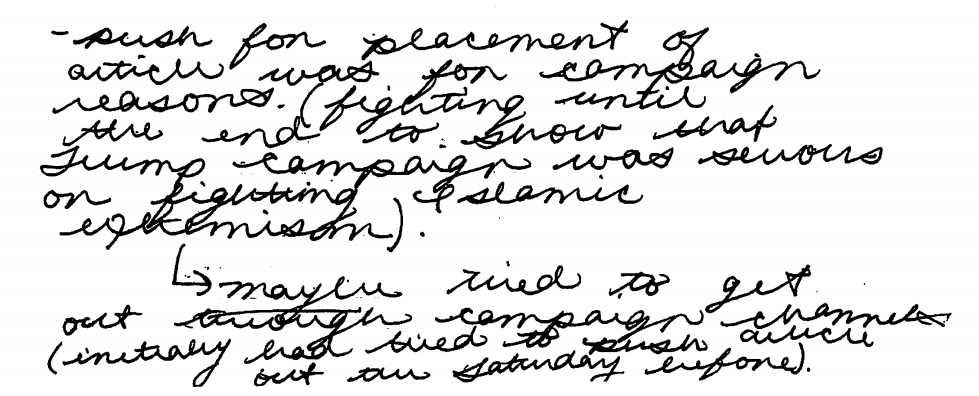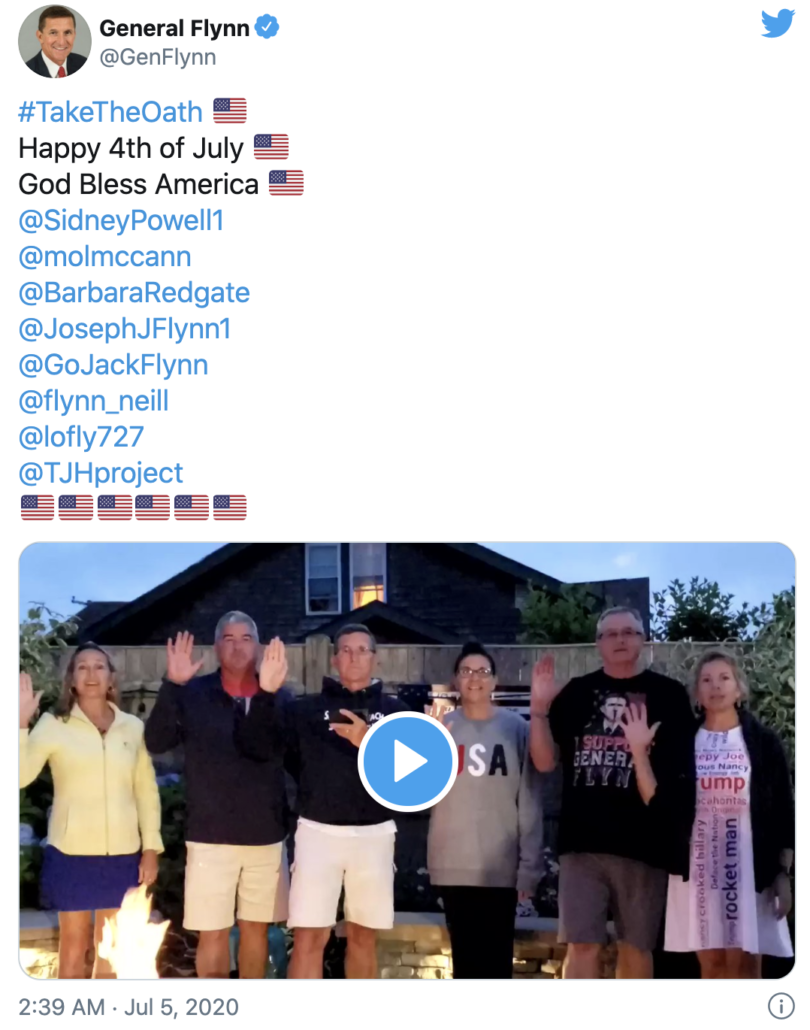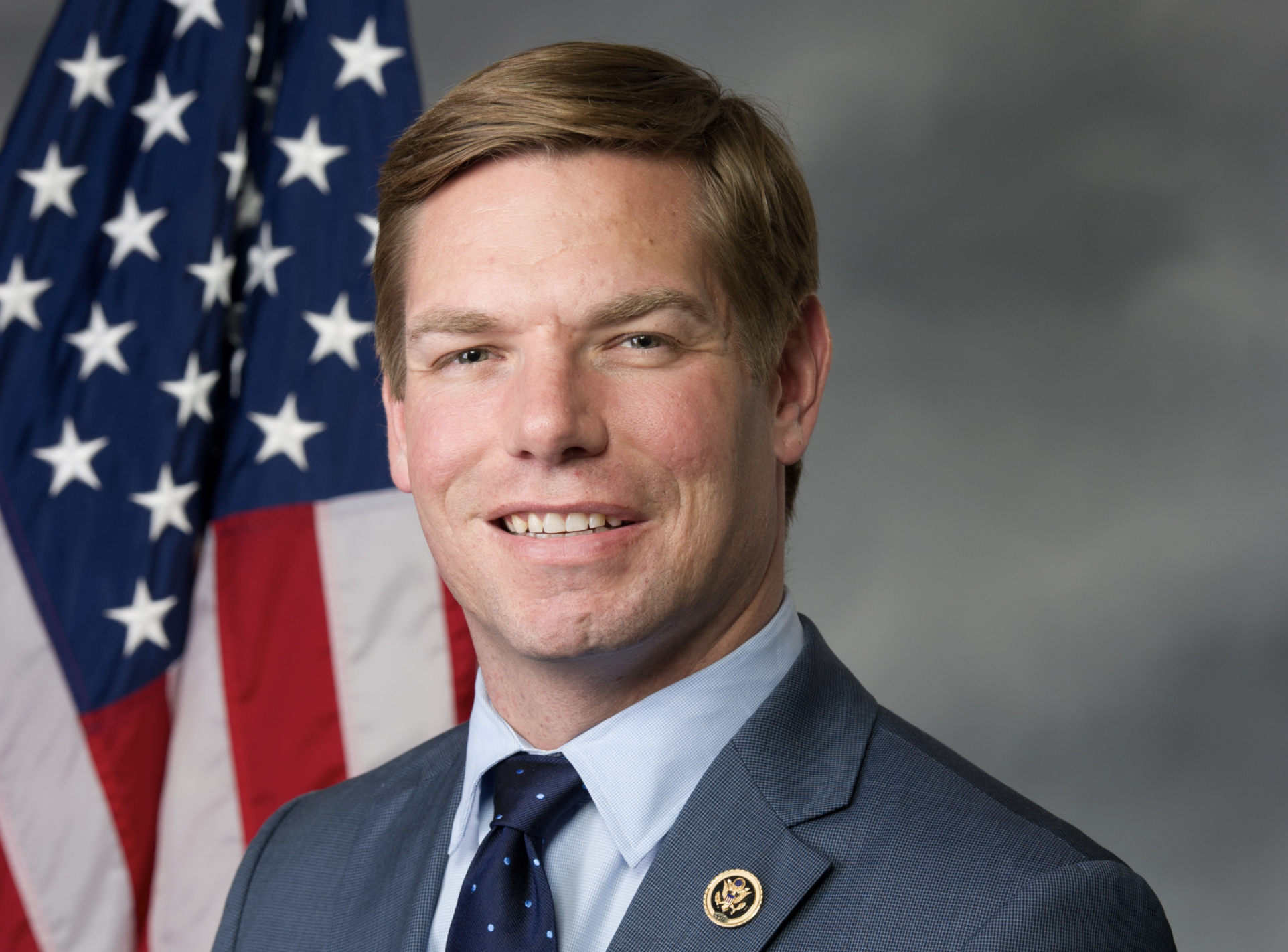Three Inconvenient Truths about a Hypothetical Trump Pardon for Julian Assange
For the last several weeks, there have been floated hints that Donald Trump might pardon Julian Assange. Assange’s supporters — from frothy MAGAts to esteemed journalistic outlets — are fooling themselves about a possible Trump pardon on several counts.
Before I lay out what those are, let me reiterate, again, that I believe the Espionage Act charges against Assange pose a serious risk to journalism (though as written, the CFAA charge does not). I agree that the Chelsea Manning disclosures, which make up most but not all of the charges currently pending against Assange, included a large number of important revelations, many I relied on with gratitude. I’d be perfectly fine if Vanessa Baraitser ruled on January 4 that US prisons were too inhumane for Assange. And I agree that EDVA would be a horrible venue for Assange (though unlike other defendants, DOJ is not simply inventing that jurisdiction for the onerous precedents it offers out of thin air; it is the most obvious venue for Assange because of the Pentagon).
So this is neither disagreement on the risks an Assange prosecution poses, nor is it an endorsement of the prosecution of Assange as it exists. But a pardon would necessarily involve other crimes, in addition to the ones for which he has been charged, and those crimes go well beyond journalism. They may even involve crimes that Assange backers want no part in supporting.
A Donald Trump pardon of Julian Assange will be a very good way of making sure Assange comes to symbolize those other crimes, not earlier laudable releases, and it might not even end his imprisonment.
It may not work
If Trump gives Assange a pardon, it’s not actually clear it will end his legal jeopardy. The existing Espionage Act charges, particularly the ones for publishing names of coalition informants (which would include the UK) are actually more obviously illegal in the UK than the US. Two UK defendants have already pled guilty to a CFAA conspiracy that makes up part of the CFAA charge against Assange. And because the Vault 7 damage assessment presented at the Joshua Schulte trial explicitly included damage to foreign partners, that publication may expose Assange to Official Secrets Act charges in the UK as well. Plus, there are other aspects of the Vault 7 publication, including Assange’s efforts — with the help of a lawyer he shared with Oleg Deripaska — to coerce immunity from the US with them, that may pose legal jeopardy in the UK if he is pardoned in the US.
I’ve likened the Assange extradition to that of AQAP graphic designer Minh Quang Pham, and this may be another similarity. In that case, as soon as it became clear that the legal disposition that Theresa May was attempting in the UK might not work, SDNY promptly indicted Pham, ensuring Pham would remain in custody no matter what happened in the UK. I wouldn’t be surprised if the reverse happened in the eventuality of an Assange pardon in the US. That is, DOJ may already have sent the UK the evidence to support prosecution of Assange in the UK for some of the things the US would otherwise like to try him on. Indeed, that is consistent with the way the US charged Assange within a day of when Ecuador applied for diplomatic credentials for Assange; the UK has already proven to be in almost immediate coordination with the US on this.
The UK would surely rather the US do the job, but particularly because of the damage the Vault 7 release caused the Five Eyes, I don’t rule out the UK prosecuting Assange if the US could not.
A Trump pardon would have to pardon everything through current day
Assange’s boosters appear to think a pardon would cover just the existing Espionage charges pertaining to the Chelsea Manning leaks (plus the CFAA charge, which is no longer limited to the password crack attempt, though virtually all his boosters ignore the substance of that charge).
That, of course, wouldn’t work. Unless Assange were immediately whisked away to a country that doesn’t have an extradition treaty with the US, he could quickly be charged in a virtually identical indictment covering Vault 7 (and the US could charge it in any case as a way to pressure whatever country he was in). Only, on every charge, the claims now being made to defend Assange — about newsworthiness, about intentionality of revealing protected identities, about the push to leak entire databases — would be far weaker arguments with respect to Vault 7 than with respect to the Manning leaks. Just as one example, WikiLeaks left the identities of the people Joshua Schulte was angry at unredacted in the Vault 7 release, which would make it easier for prosecutors to show forethought and malice for revealing those identities than is the case in (especially) the Cable leaks. And that, again, ignores how Assange repeatedly used the files in an attempt to coerce immunity from the US.
Several close WikiLeaks associates have told me after the initial indictment they were glad it didn’t include Vault 7, because that’s a lot harder to defend against. The US might prefer it for that reason.
So an Assange pardon would have to include some language like, “all offenses against the United States prior to the pardon” — a pardon akin to what Gerald Ford gave Richard Nixon.
Surely, if Trump is going to pardon Assange anyway, he would be willing to do that. Trump’s gonna make Oprah look stingy in the next few weeks, after all. But legally, for a pardon for Julian Assange to stick, it would have to cover all crimes he committed against the US through the present day.
That of course shouldn’t bother Assange supporters — it accords him even broader protection than Mike Flynn got. But it does mean that the pardon would be assessed on the entirety of Assange’s actions, the record of which remains significantly classified and the public record with which virtually no Assange booster — up to and including extradition hearing “expert” witnesses — exhibit familiarity. In other words, they’re arguing blind, without knowing what they’re asking to pardon.
Because an Assange pardon would need to extend through the present it would be tainted by Trump’s own corruption, possibly including litigation
If a Trump pardon for Assange were written broadly enough to stick, it would almost certainly include a conspiracy involving Trump himself, possibly including Russia’s GRU, granting a pardon for Assange in exchange for the optimization of the Podesta files. The pardon itself would likely be a crime for Trump. And that raises the stakes on it.
When WikiLeaks supporters hear “Assange pardon,” they seem to immediately think, “Dana Rohrbacher.” That’s significantly because Assange’s lawyers, in a deliberate use of Assange’s extradition hearing to sow propaganda (of which this is by no means the only example), had Jen Robinson submit testimony describing how Rohrabacher attempted to broker a pardon for Assange in August 2017, a pardon that was contingent on claiming Russia was not behind the 2016 theft of DNC documents. The testimony was meant to support Assange’s claim that his prosecution is political, a claim that involved misrepresenting the public record in many ways.
When Assange’s team brought this up in his extradition hearing, the lawyer for the US emphasized that Trump didn’t sanction this offer. That’s credible (and backed by contemporaneous reporting), mostly because at the time John Kelly was assiduously gate-keeping offers like this. So WikiLeaks’ focus on the Rohrabacher pardon dangle, while accurate (Robinson is far too ethical to misrepresent things), also falsely suggests that that pardon dangle was the only, or even the most important, pardon discussion between Trump and Assange. It wasn’t. And WikiLeaks knows that, because key WikiLeaks supporters — Randy Credico and Margaret Kunstler — were involved with the one still under criminal investigation.
It is a fact that the Mueller Report stated that they had referred ongoing investigations into whether Roger Stone took part in Russia’s hacking conspiracy to the DC US Attorney’s Office for further investigation. It is a fact that, when the court unsealed warrants against Stone in April, they revealed an ongoing investigation into Stone for the hacking, for conspiracy, and for serving as a foreign agent of Russia, one that Mueller had hidden from Stone. It is a fact that Randy Credico testified under oath he had put Stone in touch with Margaret Kunstler to discuss a pardon for Assange. Credico is evasive about when this discussion began, including whether the discussion started before the election. Texts submitted at trial show Stone and Credico discussed asylum and Credico’s tie to Kunstler on October 3, 2016, in a period when Stone had multiple phone calls with Credico as well as some presumed to be with Trump. Stone appears to have had lunch with Trump on October 8, the day after the Podesta emails dropped. Mike Flynn testified that after the Podesta files dropped, Trump’s closest advisors discussed reaching out to WikiLeaks. Shortly after that, Stone did reach out to WikiLeaks, and WikiLeaks reached out to Don Jr. WikiLeaks reached out to both after Trump won. And according to affidavits obtained against Stone, he and Kunstler started communicating over Signal starting on November 15, seven days after the election. As of October 1 of this year, significant swaths of Kunstler’s two interview reports with Mueller prosecutors remained sealed with redactions protecting an ongoing investigation.
If Stone is to be believed, he pursued this effort to get Assange a pardon at least through 2018. Two things are clear, however. Days after Stone told Assange he was working with the “highest level of Government” to resolve Assange’s issues, Trump directed Corey Lewandowski to direct Jeff Sessions to shut down the entire retroactive Russian investigation. Trump already took an overt act to respond to Stone’s entreaties to help Assange, one documented in Twitter DMs and notes Trump demanded Lewandowski take down. And after Mueller asked Trump about an Assange pardon, Don Jr’s best buddy Arthur Schwartz told Cassanda Fairbanks, “a pardon isn’t going to fucking happen” (she ultimately flew to London to tell Assange what Schwartz told her in person). Nevertheless, Stone’s buddy Tucker Carlson had Glenn Greenwald on pitching one to Trump — as a great way to get back at The [American] Deep State — in September.
To be clear: If Trump pardons Assange for all crimes against the United States, the pardon will still work for Assange (again, unless the UK decides to file charges against Assange instead). And I expect a great deal of Assange’s most loyal boosters won’t give a shit about what all was included in the pardon. Indeed, WikiLeaks’ most loyal fans believe it was a good thing for Assange to partner with the GRU in 2016 to undermine a democratic election.
But if Trump pardons Assange, these details are virtually guaranteed to come under close scrutiny in the months ahead, all the more so if he tries a self-pardon, because this would be one thing that even the 6 Republican majority on SCOTUS might find unreasonable, and it would be the quickest way to prove that not just Stone, but Trump himself, conspired to optimize the files stolen by Russia.
If all that were to happen after he was safe in Oz, Assange probably wouldn’t care, nor would I if I were in Assange’s position. But those backing an Assange pardon are — because of details that virtually none of them understand — cheering Trump to do one of the most corrupt things he would have done over the course of the last five years.










